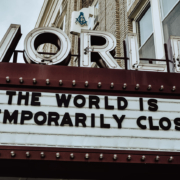Improving Investor Behavior – Managing the Pain of Regret
Regret may be the most enduring and damaging emotion investors grapple with during their financial lives. As financial advisors we see it from both sides: clients either regret having done something, or regret NOT having done something, or more often, both. Like a cancer, regret can crawl into all facets of your financial life and encourage you to make bad decisions. All too often, it’s successful.
What is regret? The way I see it, regret is the revisitation of past mistakes. Maybe someone hit the panic button as the market dropped, only to watch investments rebound in a short period. Perhaps they jumped out at a good time, but couldn’t decide on a “right time” to jump back in, missing out on would-be gains. Investors watch themselves do this over and over each time saying they won’t do it again. Then, when they inevitably do, the regret only deepens. This vicious cycle can pour over into other areas of life. How often have we heard the stories of someone betting their life’s savings just to have the outcome bounce the other way?
One such family was chronicled in the Wall Street Journal in May of 2010. The Potyk family liquidated their investment portfolio to avoid the volatility they had been experiencing. The article listed all the problems with the economy and markets, and that investors were abandoning stocks. Investors felt that this was the smart thing to do the article continued, as they thought the markets would be fundamentally different going forward.
I don’t know what happened to the Potyks. The Journal never wrote a follow up to revisit their story. But I wonder how many years they sat on the sidelines, distrustful of what would become one of the longest bull markets in United States history. And if they did, do they now struggle with the regret of that decision? I imagine they must. This is just one of a thousand stories with similar patterns: emotional reactions to uncontrollable circumstances.
So how can we combat regret? What can we do to learn from past experiences without dwelling on the “woulda-coulda-shouldas?”
If regret is a child, its parents are fear and greed. When markets fall, the fear of loss rears its head. When prices rise, greed and envy of those who are “getting rich” lead to the fear of missing out. Ultimately greed is just another form of fear. Giving into either of these emotions often creates regret. In short, regret is most commonly caused by emotional reactions to uncontrollable events.
Though we cannot control the uncontrollable (like what the market does on any given day), we can manage our reaction. We do this by creating a plan based on a foundation of logic, not emotion. Personal finance is more personal than it is finance, so we try to account for feelings. For example, plans should be designed to encourage people to feel safe and strive to help them achieve the growth they seek. They’re regular reminders in periods of uncertainty and fear. They prevent regret by tackling it at its source. Think about it, when was the last time you heard someone regret sticking to a plan?
I think gratitude is also a potent antidote to regret. It’s easy to question past mistakes and wonder what could have been done differently. All the questions make it easy to lose sight of the answer you chose, and the outcomes of the decisions you’ve made. Ultimately they’ve all led you to where you are now. Isn’t that something for which to be thankful? Something from which to learn? Searching for the gratitude hidden under layers of regret has had a profound effect on me, and has led me to learn lessons from each mistake I’ve made.
For those of you who play golf, you’re probably familiar with the idea that you should not let your past shots influence your next one. And if you play golf, you probably know how hard this is to do, especially if your previous shot sent you looking for your ball deep in the weeds of an adjacent hole. But hey, a bad day playing golf beats a good day working. Make a plan, envision the outcome, and take the shot. Make the next shot a good one, and watch the pain of regret fade away.
Steve Booren is the Owner and Founder of Prosperion Financial Advisors, located in Greenwood Village, Colo. He is the author of Blind Spots: The Mental Mistakes Investors Make and Intelligent Investing: Your Guide to a Growing Retirement Income and a regular columnist in The Denver Post. He was recently named a Barron’s Top Financial Advisor and recognized as a Forbes Top Wealth Advisor in Colorado.








